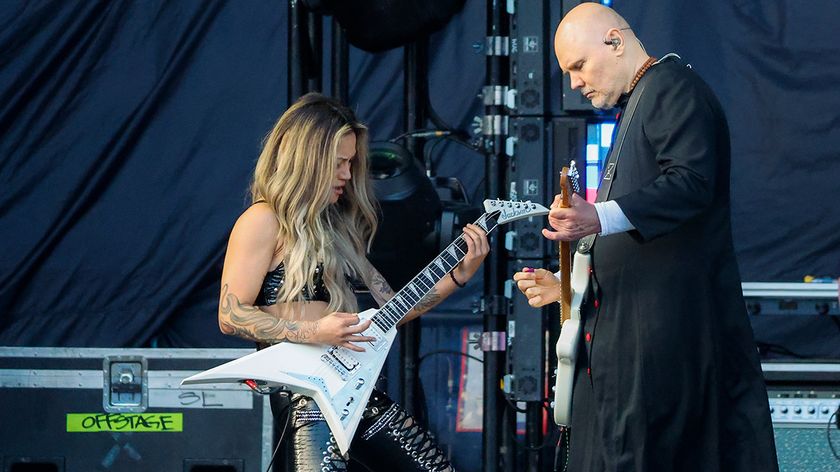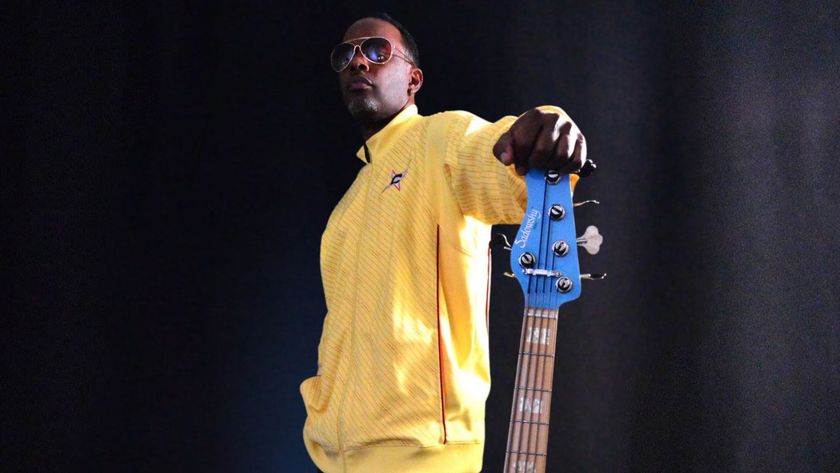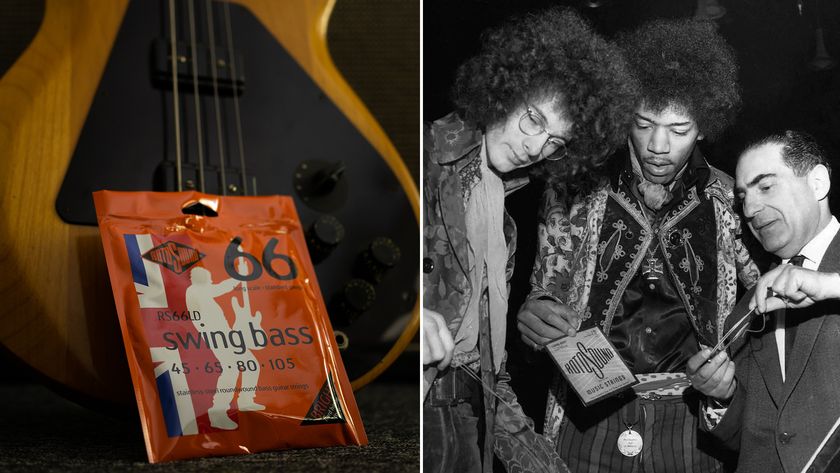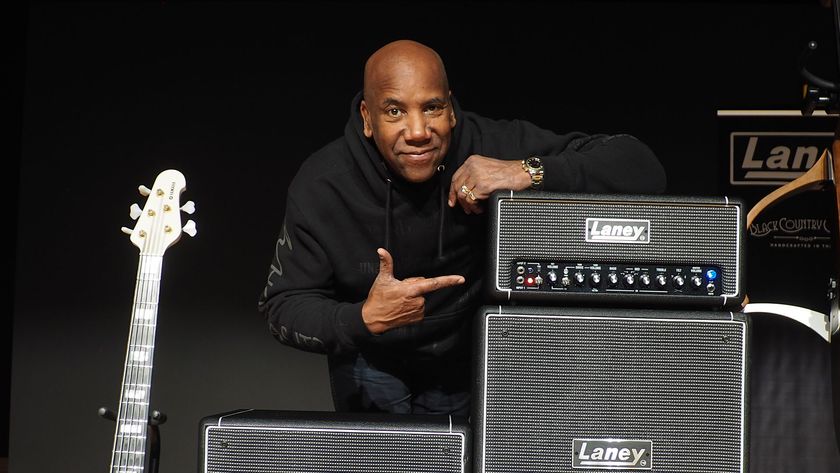Interview: Duke Robillard Discusses His New Album, 'Low Down and Tore Up'
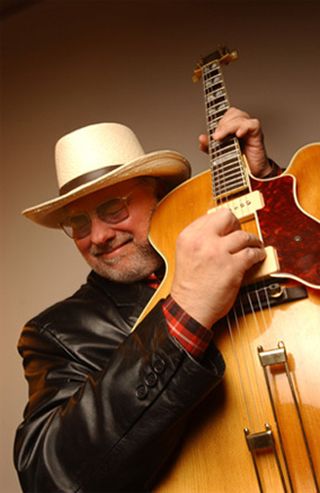
This story is courtesy of Epiphone.
For fans of R&B, blues, jazz, bop, swing, and real rock and roll, it's hard to imagine a time when Duke Robillard hasn't been here, part of our collective vocabulary in the dictionary of "cats who got it."
From his earliest days in Roomful of Blues, fans recognized that Duke was one of the rare artists who heard the classics as dynamic, deeply moving pieces of music that could be performed with detail and nuance without sacrificing personal vision.
While it's easy, it seems, to take artists like Duke (not that there are that many) for granted -- performing and recording at a steady clip year after year -- Duke continues to grow. In fact, he keeps getting better, which is a scary proposition for those of us who are still trying to pick along to records made a dozen years ago.
Stints with Bob Dylan (Grammy winner Time Out of Mind) and Tom Waits ("He put a new song under my hotel door every night"), have kept Duke loose, dynamic, and open-minded at an age when other veterans are leaning back and letting go.
For new fans and old, Duke has done the near impossible timebend of being two musicians at once; one, an original stylist and composer, and the other a compact walking, talking, grooving shaman who can recall T-Bone Walker, George Barnes, Barney Kessel, Les Paul, Mickey Baker, or any number of guitarists for Cobra, Chess, Excello, Sun, Atlantic, RPM, and a dozen other defunct 78 labels.
Recently, Duke stopped by the Epiphone office to talk about his new and very excellent album, Low Down and Tore Up. During our interview, a chance mention of Bill Doggett's classic "Honky Tonk" inspired Duke to lay down a brilliant counter-rhythm to back up Billy Butler's iconic guitar solo ("I came up with that just sitting around. It makes it sound like you have a horn section with one guitar").
Get The Pick Newsletter
All the latest guitar news, interviews, lessons, reviews, deals and more, direct to your inbox!
Duke made it look so easy that everyone in the room immediately picked a guitar off the showroom wall and tried it. But we didn't sound like Duke.
Duke talked to us about his early influences growing up in Woonsocket, Rhode Island, forming Roomful of Blues, his long friendship with the Fabulous Thunderbirds and all while maintaining a running commentary on a '61 reissue Casino that most likely will be heard on his next album.
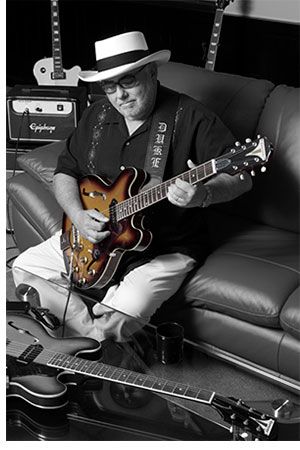
EPIPHONE: How did you come to play guitar?
I was born in 1948 so when I was 6 years old that was kind of the beginning of rock and roll. My family always listened to Hank Williams and Bob Wills. When I was growing up, my brother played guitar for fun. He was never serious about it. He brought home 45s by Little Richard, Jerry Lee Lewis, Buddy Holly, Elvis, Chuck Berry-- you know all the rock and roll hits.
I remember the moment that I knew what I wanted to do for the rest of my life. I was 6. It was the year Fats Domino's "Blueberry Hill" came out and I remember hearing that intro and then the guitar and the bass came in with that riff. And that riff just hit me in a way that knocked me out. IT was that whole New Orleans thing and it made me want to play that song. I really loved Fats. Buddy Holly was a really big influence on me. I taught myself all the parts to his uptempo rock and roll songs.
When did you get your own guitar?
I was 10 or 12 when I got my first real guitar. Up until then, I wasn't allowed to have a guitar. When my brother was on a date or at football practice, I'd go in his room and I'd teach myself to play guitar by listening to the records. And then my parents wouldn't let me have a guitar because that's all I talked about.
But my uncle gave me an old Kay acoustic. I told my father that I had to build a guitar for a science project so he and I built a Telecaster looking kind of guitar but we didn't put the neck angle on right because we didn't know anything about that. But it got me in my first band. My first Gibson was a Melody Maker and that would have been in mid-'50s.
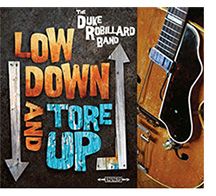
Who was your biggest influence when you started?
Chuck Berry was the biggest influence on me. And the slow blues on the flip sides of his singles, like "Wee Wee Hours," that put me in a trance. I didn't know what blues was. I was just a country boy where I grew up. It took over my whole being.
And the guitar instrumentals he did like "Deep Feeling"-- I thought, 'what is this music?' I started getting goose bumps. From then on, I was just hooked. And from the time I got to high school, The Rolling Stones had come out and the Animals were doing Ray Charles' tunes. The Paul Butterfield Blues Band was just starting. When I bought their records, I'd look at the liner notes and read about the real stuff and I just became a crazy record collector after that. I still have a giant 78 collection. If you have a diamond needle and a good system and the records are in pretty good shape, there's no sound that can compare.
A lot of your solo style seems to be more based on horn lines than guitar.
Right. Once I got in to a blues/jazz type of thing, I discovered Count Basie's records. My favorite solo on record for guitar was just the sound of Freddie Green doing a 4/4 acoustic rhythm. I also started being influenced in my solos by Lester Young, Louis Armstrong, Cootie Williams, Johnny Hodges Ben Webster, people like that. That's one of the things that's a little different about my guitar playing--I'm self-taught. I never learned scales and arpeggios in proper time. I'm always slurring things and bending behind the beat like Lester Young, like a saxophone can do. I try to create a tension with the sound. I do that with guitar and some people don't get it, some people do.
How did you get material for Roomful of Blues?
I was 17 when I started the Roomful of Blues. The first couple of years it was without horns, more like Chicago blues and then when I discovered the rhythm and blues--there was nobody doing anything quite like that '40s and '50s rhythm and blues sound--that's when I added the horns in. I just went to all these 2nd hand stores and basement and record shops and started amassing that material. Our goal was to just sound like those bands, just the way they were.
I think that's a great way to learn is to emulate and them take it and make it your own after you do that. My quote--what I always say--is that I steal from the best.
How did you meet the Fabulous Thunderbirds?
I first heard them when I was in Roomful of Blues, when they first came up to New England where I'm from. We heard them in Boston and we loved them and they came to see us and they loved us and we became very good friends. In fact, half the band ended up being Roomful of Blues people. But we used to get them opening for us on our shows when it was smaller and when they were just stating out. Eventually we'd do double bills. As many times as we could play together, we would 'cause we just loved to play with each other. In fact, when Jimmie Vaughan decided to leave he just said "Call Duke" so they did.
Duke's new album, Low Down and Tore Up, which has a terrific shot of Duke's late '40s Epiphone De Luxe Cutaway on the cover, is wonderfully written and sounds impossibly fresh--one of the few recordings in the digital age that can survive at high volume without thinning out.
But what's most astonishing is the variety of guitar tones. "Quicksand" has a bite reminiscent of Otis Rush's early work on Cobrawhile "Blues After Hours" has all the magic, late-night-just-rained-alley sound that Duke heard on those Chuck Berry singles as a boy. A wider audience would be stunned that records like Low Down and Tore Up are still made if they were given a chance. And they just might get that chance. Regardless, Duke stays focused on the sound that seems just at the edge of his fingertips.
"For 50 years I've been searching for some sound around and I think: 'well, if I play this guitar it's gonna give me that.' I even just keep trying to whittle it down. Like I could say to my wife, 'this one, this '61 Casino, that's the sound I've been looking for all this time,' and she'd go, Yeah right!'"
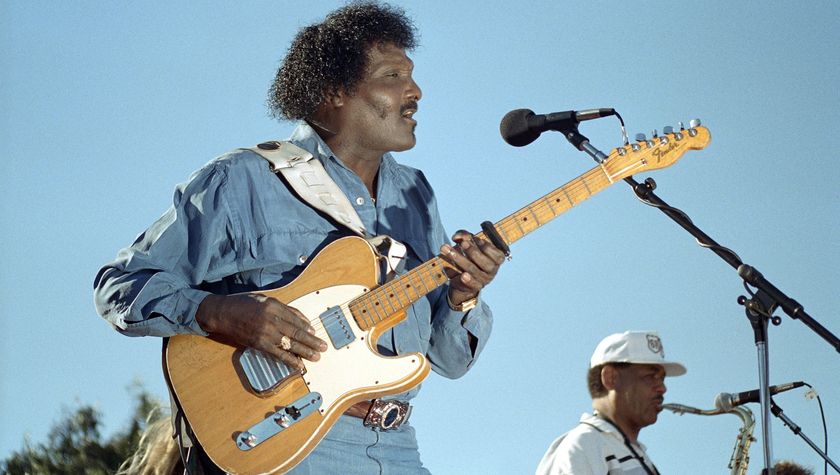
“Freddie King would ask me why I never tried using thumbpicks – I just couldn't play with one”: He took Jimi Hendrix's place in Little Richard's band, was idolized by Stevie Ray Vaughan, and is one of the most overlooked Telecaster slingers of all time

“If any song can unite all generations of rock guitar fans, this is it”: March 2025 Guitar World Editors' Picks
